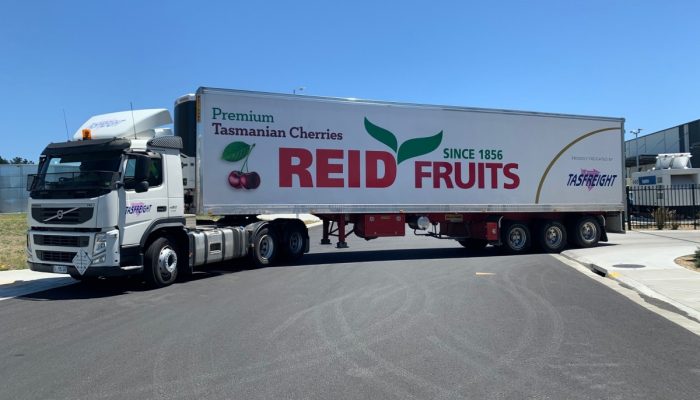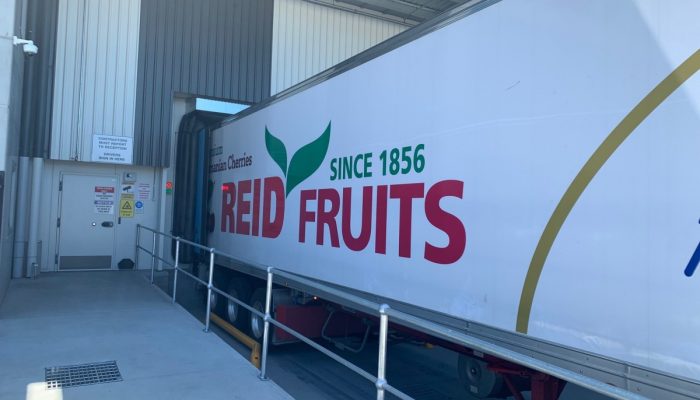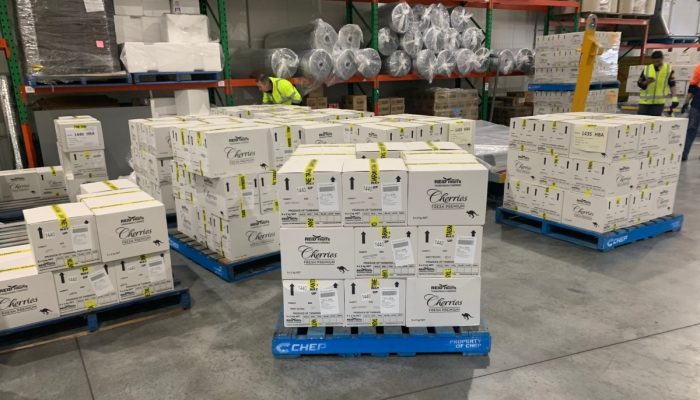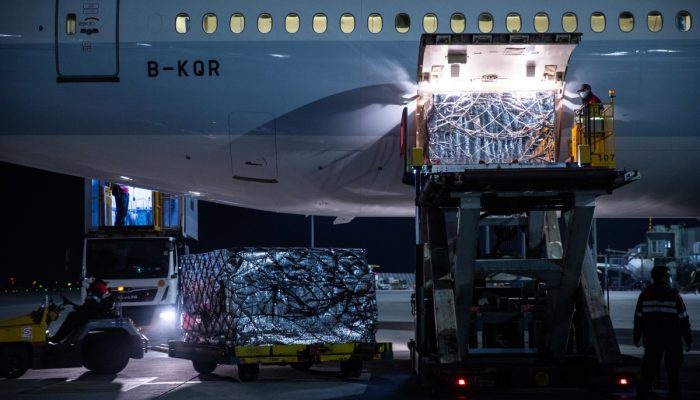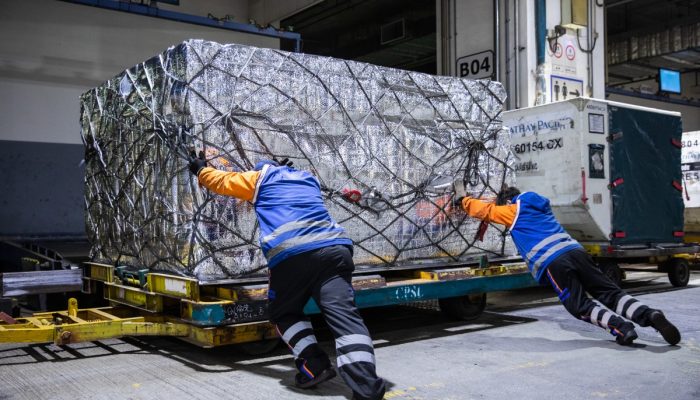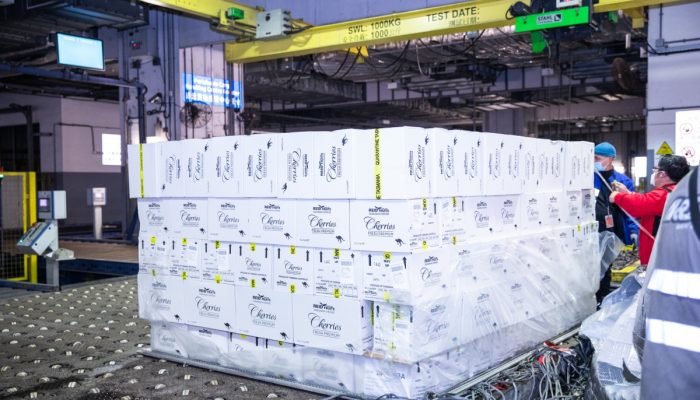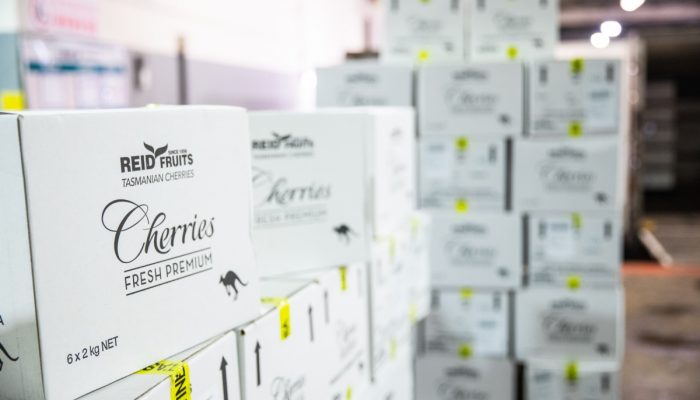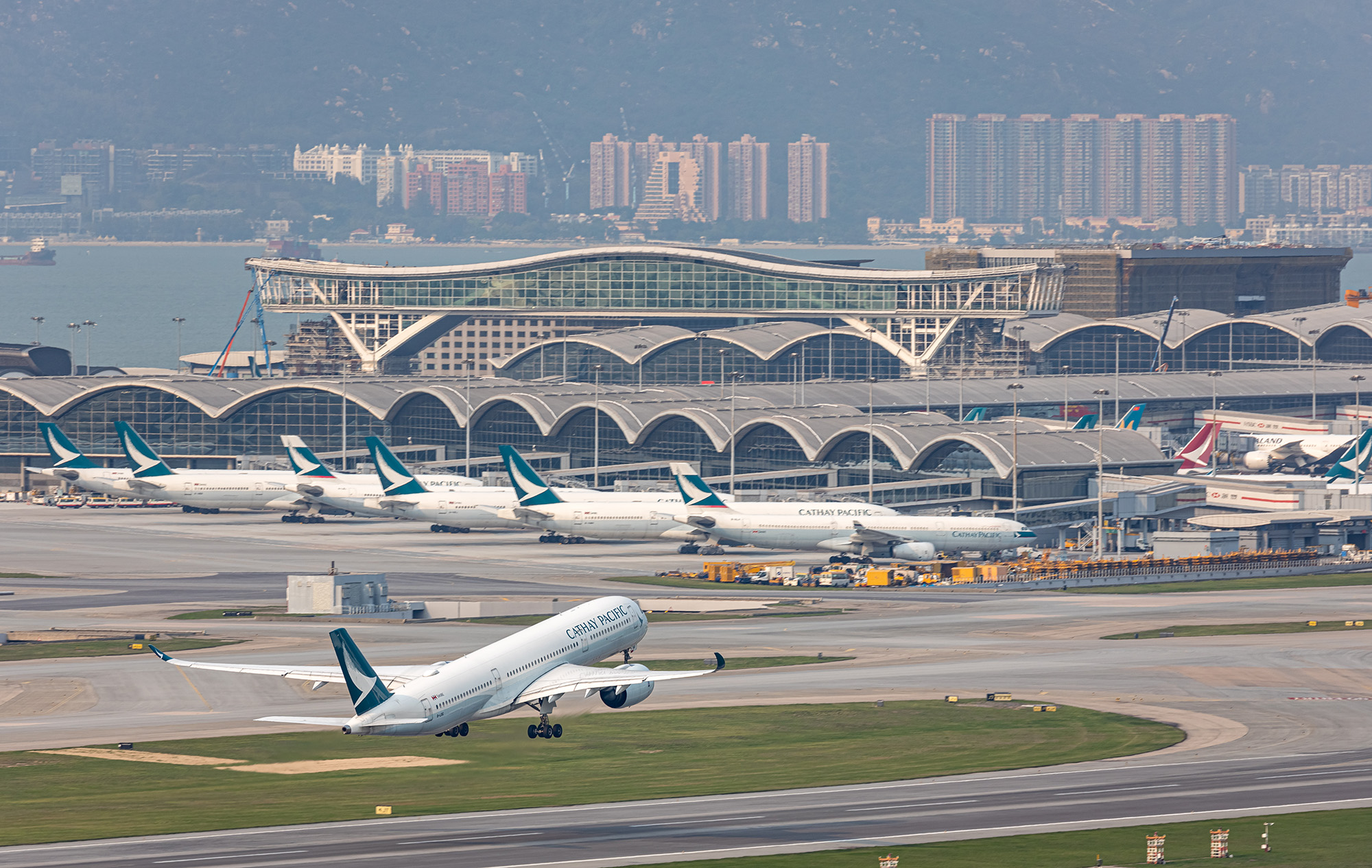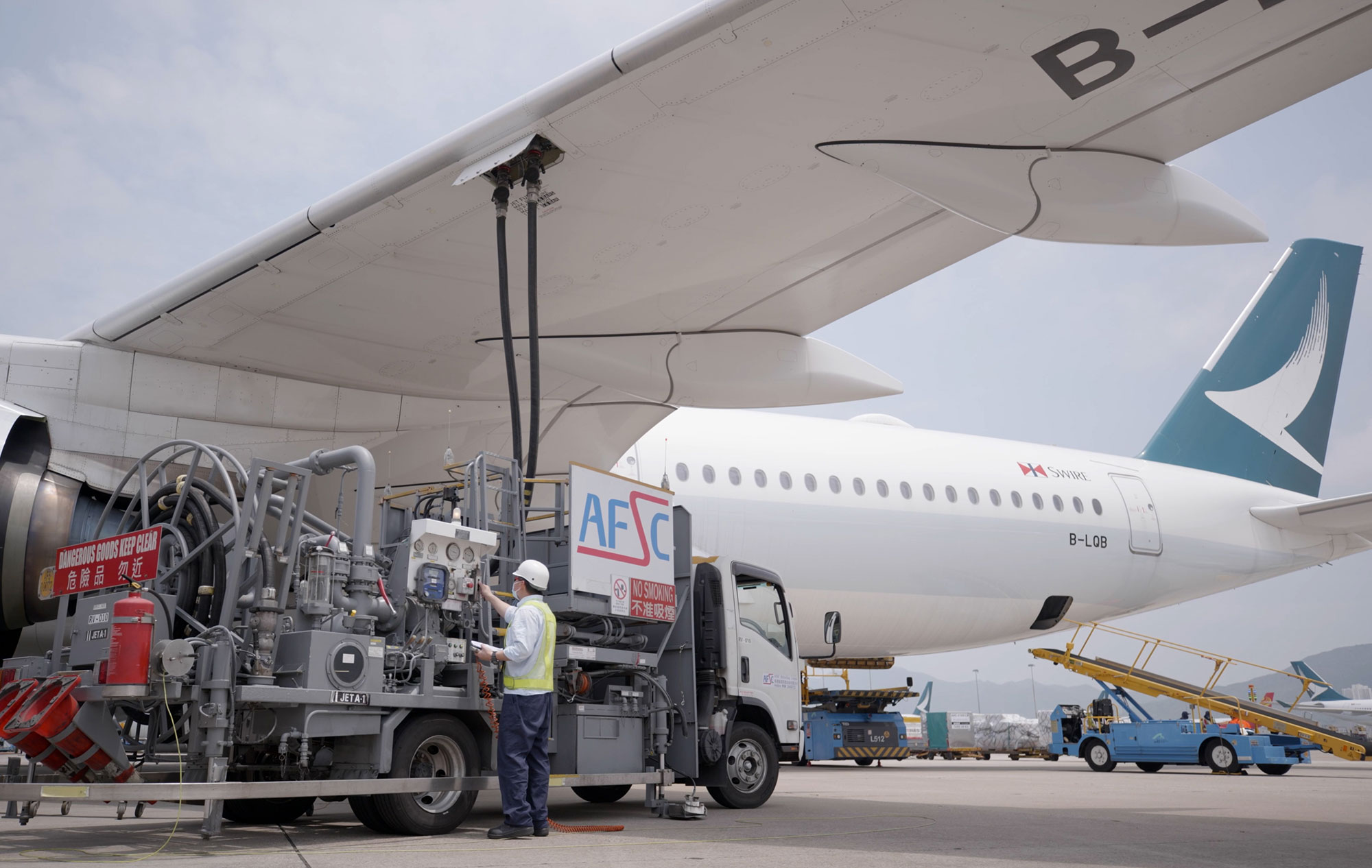In a farmhouse kitchen-style showroom on an upper floor of an Ap Lei Chau industrial building, David Meredith, founder of Tas’Mania Fresh, is showcasing the mouthwatering products his company supplies to Hong Kong’s retailers and food industry clients.

On display is a bounty of quality produce plucked from Tasmania’s clean waters and fertile hills. This includes the smoked salmon that is sometimes served in Cathay Pacific’s Business Class cabins, live seafood, salad leaves and, most importantly at this time of year, Tasmanian cherries – prized for their size, flavour and crisp juiciness.
Next door, in a room dominated by industrial fridges, a team of nimble-fingered and eagle-eyed women are emptying boxes that arrived on a pallet from this morning’s Hobart flight at 5.30am. Inside are gold-standard packs of cherries grown by Reid Fruits and handpicked the day before. Although the cherries have been pre-sorted by species and graded for size on the farm – they have been travelling, and need to go through a further layer of quality control.
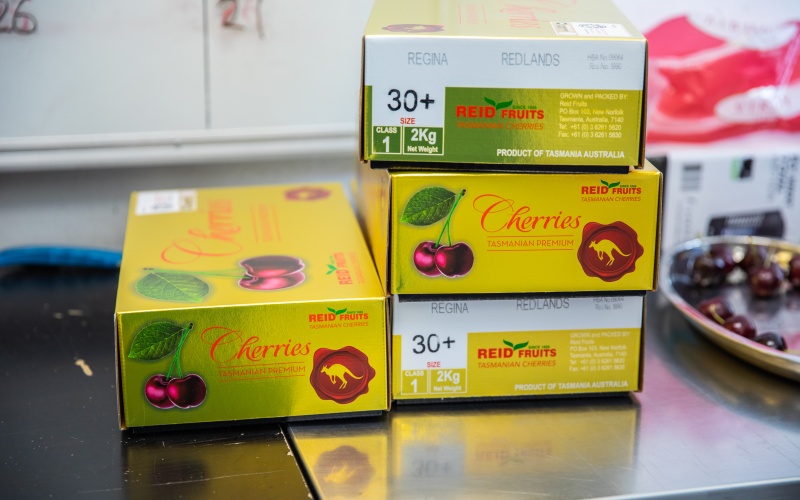
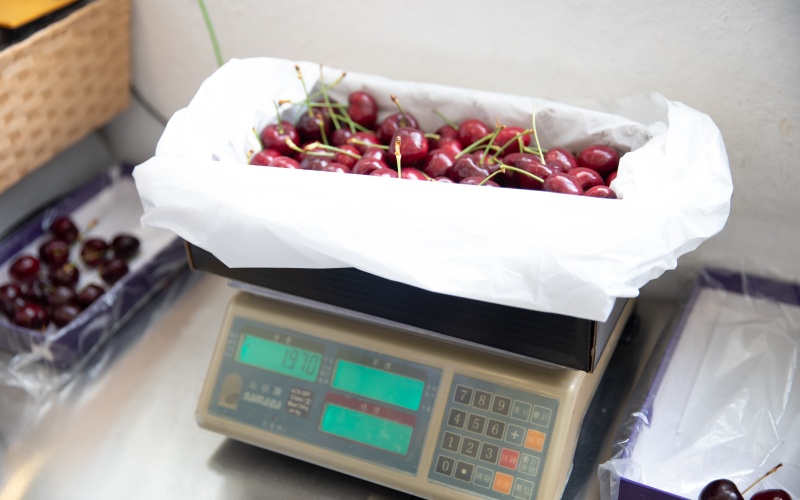
The nimble fingers and eagle eyes are not just looking for blemishes, but ensuring that the stem is green and replete with the nodule where it once joined the tree. This ‘feeds’ the cherry while it travels, and is also a sign of hand picking rather than machine harvesting.
A 2kg box of ‘gold’ cherries will retail for anywhere between HK$600-HK$800, so ensuring the quality is vital. But the bigger concern for Meredith was being able to get them to Hong Kong at all.
Located off the southern coast of the Australian mainland, Tasmania has been slightly cut off from the rest of the world in cargo terms since the pandemic. The airport serves domestic destinations using narrow-body aircraft, which suit the short runway but are not ideal for cargo shipments. As Meredith says: ‘Any cargo is loaded by hand and you can’t fit a pallet in a Boeing 737.’
In ordinary times, his cherry shipments would be loaded into refrigerated trucks and driven the 200km or so to Devonport, loaded onto the Spirit of Tasmania for an overnight sea crossing departing at 7pm, arriving in Melbourne at 7am for transfer to a warehouse to be repacked.
This all needed to be done before 11am in order to catch the CX104 flight to Hong Kong. That’s a tight schedule, and a delay anywhere could jeopardise the shipment. ‘But that wasn’t so heart-breaking,’ explains Meredith. ‘There was also CX178 at midnight or CX134 the following morning.’
But these are not ordinary times. The pandemic means that while Cathay Pacific freighters are running to schedule in Australia, the passenger flights are not. ‘Now with the current schedule we can’t even count on a back-up flight from Sydney,’ says Meredith.

Cathay Pacific Cargo’s decision to create an airbridge to Hong Kong with seasonal cargo-only flights came as a relief. ‘The Hobart flights give us certainty,’ he says.
Yet it was far from certain that these flights would even be possible. There have long been plans to extend the runway at Hobart Airport and to cater for international flights, but to date there’s been more work on budgets than bulldozers. So it took some persuasive calculations from Cathay Pacific’s Flight Operations team to convince the airport authority that a cargo-only Boeing 777 with enough fuel to break its journey in Melbourne could land safely and fly out with around 40 tonnes of Tasmania’s produce.
For Meredith the flights have been a lifeline, and assures quality for his chilled produce. ‘The cool chain is important, because the low temperature slows the metabolism, and that’s why the Hobart flight is so important to us,’ he says. ‘The flight cuts a day out of the journey. On the same flight today, we have salad leaves in packs for a supermarket. The salads are very sensitive and have a very short shelf life, so these flights have really helped. At this time of year, there’s a lot of pressure on capacity. With Chinese New Year every spare space is gone and these flights have helped to alleviate that demand.’
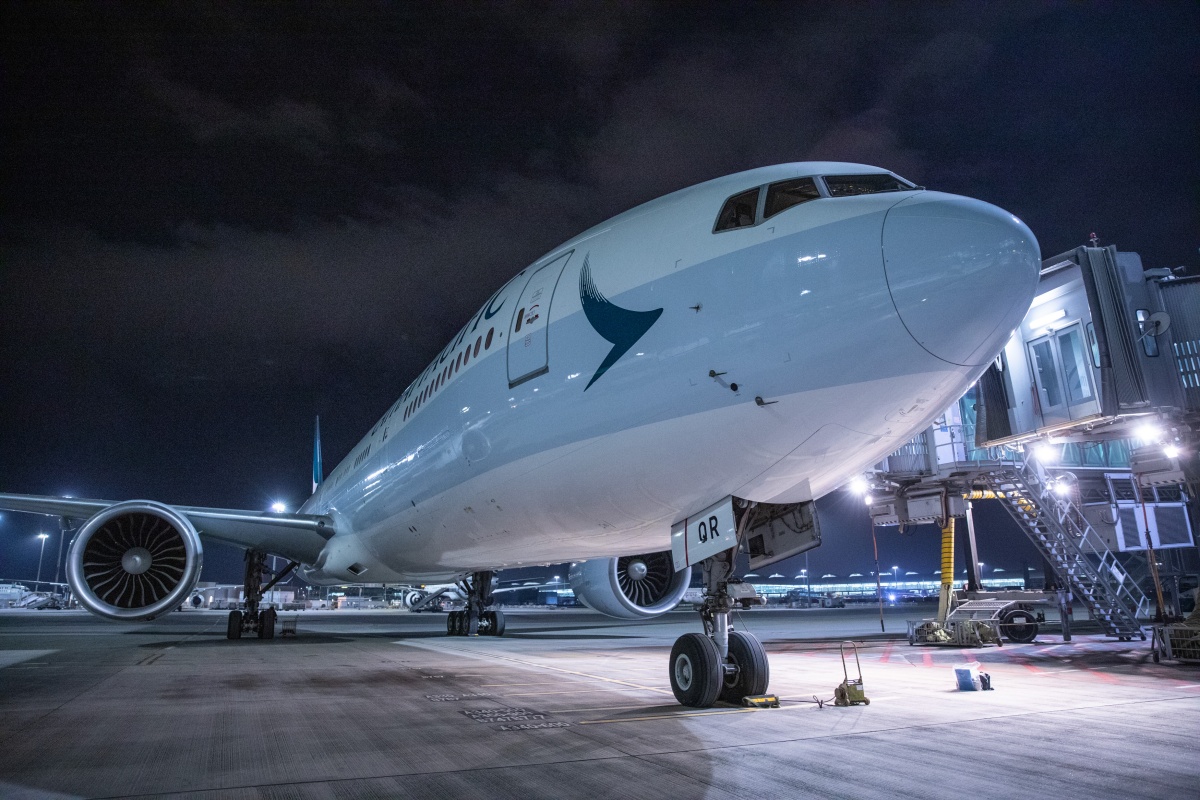
‘To organise and run these flights when our network is severely handicapped, and to continually deliver extra capacity to make these flights successful has been an outstanding team effort,’ says Cathay Pacific Regional Cargo Manager for Southwest Pacific Nigel Chynoweth. ‘It is at times like these – usually the bad ones – that you can really see Cathay Pacific has an inbuilt culture to deliver.’
And thanks to these flights, so can Tas’Mania Fresh. After the hubbub of cherries dies down, thoughts will turn to avocados from Queensland. ‘We use Cathay Pacific out of Brisbane and Wellcamp,’ says Meredith. Then, attention will turn to the Tasmanian oyster season in May, and the island’s apples until September.
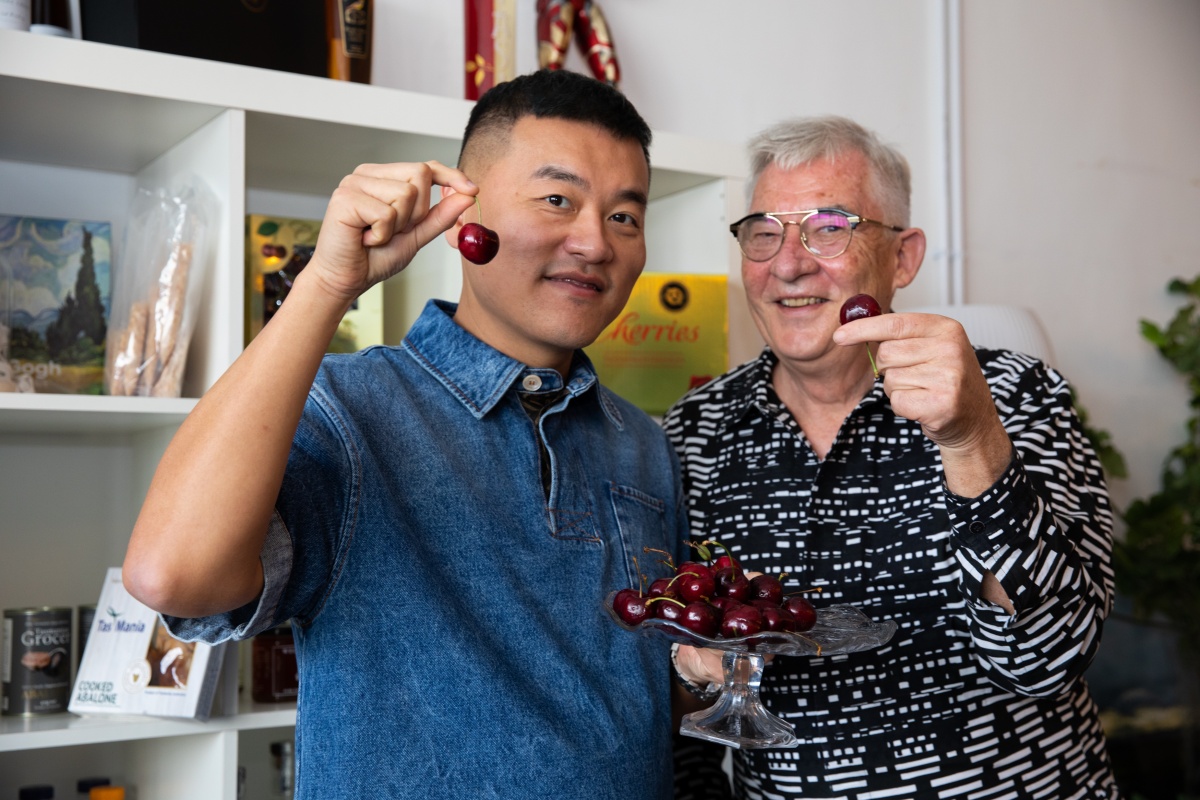
This can now be planned with confidence. Without the Hobart flights, the outcome for Meredith would have been starkly certain: ‘We wouldn’t have a business.’




